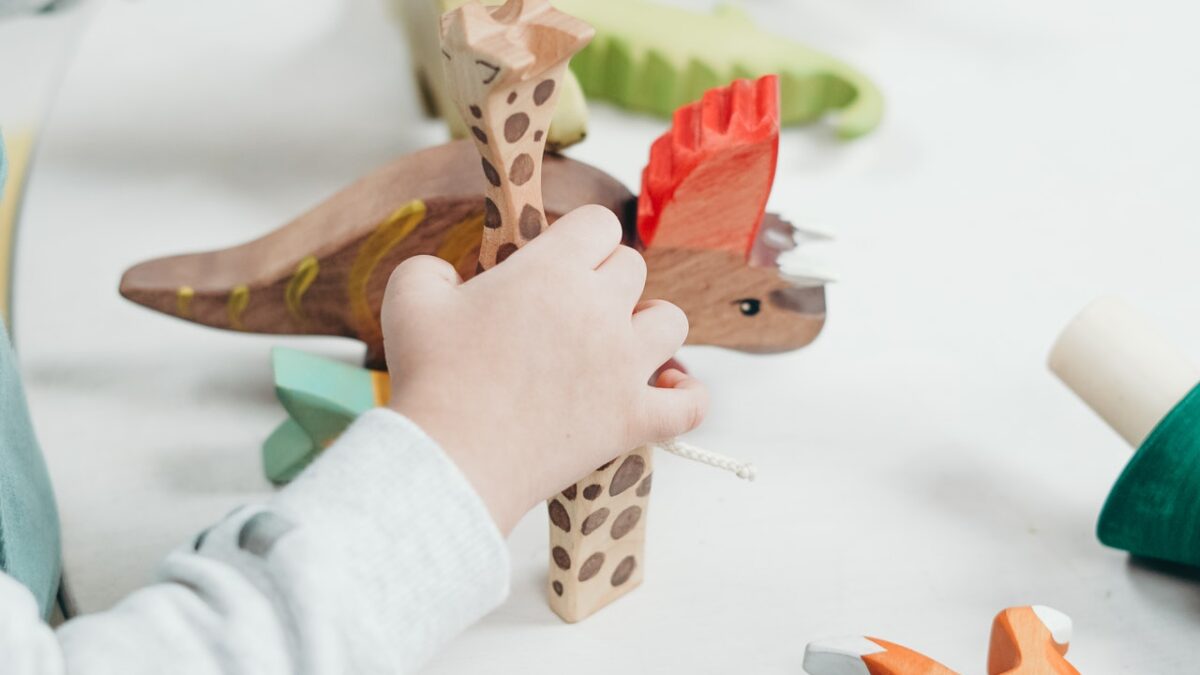Is there something that we as moms can do to help and assist in our baby’s development? Of course there is! Actually the level of active involvement in our baby’s activities, can have a profound effect in their development and can make a real difference!
What is my baby learning?
During their first four weeks your baby has already learned to recognize your voice, face, and your touch as well as to make a connection between these and feeling comforted. In the months ahead your baby will learn how to respond even more to your voice and your touch, as well as give you a smile as a big bonus!
At 1 month old babies start to spend a bit more time staying away, and thus curiosity starts to spark about all the things around them. Physically they are getting stronger each day and gaining abilities that help them coordinate their movements more. You can encourage all these learning processes by talking to your precious love; respond to them by imitating their sounds and expressions, and provide colourful toys adaptable to their age.
Around this time mama you may also start to notice the beautiful colors of your baby’s personality. In the first months of life, babies expect others to make the first step in an interaction. But around the end of the third month your baby will start initiating interactions through facial expressions, vocal sounds, and gestures as well. Your baby will start being so focused and carefully examining your facial expressions, trying to follow your voice while responding with coos and baby sounds. Around the second month your baby will start to smile socially smiley – respond purposefully with a smile. Around 3 or 4 months, most babies start squealing and laughing joyfully. Trust me mama, it’s the best sound in the world!
After the first month babies can start opening and closing their fist, thus being able to keep a toy rattle in their hands. Soon enough that little munchkin will start moving it around realizing that as he moves his hand – the sound is created! OH my what a discovery that will be!
At around the same time your baby will start exploring their environment and surroundings through their hands: touching, reaching, ‘asking’ for their favorite toy. They will start to realize that they have hands and feet – oh how cool and fascinating those are! And those little hands and feet will turn into their main attraction – after you of course!

How can I assist my baby’s development?
Respond to their verbal cues and baby coos. Encourage your baby to use their voice, in this way your little one will learn a lot about communication and ask-and-respond.
Provide colorful toys, with different materials to encourage sensory play and development- different sizes and shapes are also highly encouraged ; all this will encourage the baby to explore more. This is a very appropriate age to place your baby on a playing mat, with hanging toys, and just sit and watch in marvel as the baby will try and reach for it. But please don’t hang or place toys in the baby’s bed as it can be a choking hazard.
Watch for any signs of over stimulation: baby starts to fuss, move his sight away, cry and so on. These are all signals that they need a break and some quiet time.
Other ideas on how to encourage your baby to play and learn:
- Take your baby’s hands, clap them gently, cross arms, and/or move them up and down.
- Do some bicycle leg exercises
- Take their favorite toy or rattle and move it slowly around for them to follow it; take it on the other side of the baby’s head and shake for the sound- this stimulates baby’s hearing and their head coordination as they look for the sound.
- While the baby is awake place them on their tummy and allow tummy time- this is an amazing activity and it helps tone and strengthen their back and neck muscles. But always supervise your baby during tummy time, and remove them if they start to get tired or to fuss. NEVER place your baby to sleep on their tummy. They should always sleep on their backs – this lowers the risk of SIDS (sudden infant death syndrome)
- Make different funny and exaggerated facial expressions for your baby to imitate.
- Speak continually to your baby and give them a chance to respond
- Read read read with your baby.
Always remember that babies develop in different times and paces; normal baby development is a wide spectrum. If there is something that worries you regarding your baby’s development, always check with your pediatrician.
Related posts
Rreth Meje
Mirëserdhet te The Mom Corner, një qendër ditore që ofron klasa mami&unë dhe programe zhvillimore te fokusuara te femijëria e hershme. Ina Xhafa, themeluesja dhe drejtuesja e The Mom Corner, ka kryer studimet e larta të nivelit Bachelor në Psikologji, në LCC International University në Lituani, dhe Masterin MPA në drejtimin Politika Edukimi, në Cornell University në New York, USA. Ka mbi 6 vite eksperiencë profesionale duke punuar me fëmijë, familje dhe adoleshentë si këshilluese dhe në fushën e edukimit si dhe ka disa certifikime si praktikuese e metodave Montesori dhe Reggio Emilia. Mbi të gjitha është bashkëshorte dhe nënë e një djali 2 vjecar, i cili është edhe frymëzimi kryesor i The Mom Corner.
Learn more



Me Ndiqni: